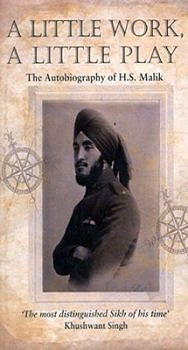Sculpture of Hardit Singh Malik | 08 Mar 2021
Why in News
Recently, England has approved the design for a sculpture of an early 20th century Sikh fighter pilot “Hardit Singh Malik” for a new memorial to be erected in the port city of Southampton.
- The memorial is built in memory of all Indians who fought in the World Wars.
- The memorial will be created by English sculptor Luke Perry.
Key Points
- About Hardit Singh Malik:
- Birth:
- He was born into a Sikh family on 23rd November 1894 in Rawalpindi in West Punjab, pre-partitioned India.
- Career:
- Hardit Singh Malik first arrived in the UK in 1908 as a 14-year-old to Balliol College at the University of Oxford.
- He became a member of the Royal Flying Corps during World War I (1914-1918).
- As the first Indian and turbaned pilot with a specialised helmet, he became famous as the “Flying Sikh”.
- Malik also played cricket for Sussex and was also the Indian Ambassador to France after a long and distinguished career in the Indian Civil Service.
- Death:
- He died in New Delhi on 31st October 1985.
- Birth:
- India’s Contribution to World War I:
- About:
- World War I (WW I), also known as the Great War, lasted from July 1914 to November 1918.
- WW I was fought between the Allied Powers and the Central Powers.
- Allied Powers: France, Russia, and Britain. The United States also fought on the side of the Allies after 1917.
- Central Powers: Germany, Austria-Hungary, the Ottoman Empire, and Bulgaria.
- India made a huge contribution to Britain’s war effort.
- As high as 100 million British Pounds was given by India to Britain to fund their war anticipating dominion status and home rule in return.
- The British raised men and money from India, as well as large supplies of food, cash, and ammunition, collected by British taxation policies.
- In return, the British promised to award self-rule to India at the end of the war which eventually was not delivered.
- Troops:
- It sent staggering numbers of volunteers to fight and die on behalf of the allied forces.
- Almost 1.5 million Muslim, Sikh and Hindu men from regions such as the Punjab, Uttar Pradesh, Maharashtra, Tamil Nadu and Bihar volunteered in the Indian Expeditionary Force, which fought on the Western Front, in East Africa, Mesopotamia, Egypt and Gallipoli.
- However, of these men, around 50,000 died, 65,000 were wounded, and 10,000 were reported missing, while 98 Indian army nurses were killed.
- Other Supplies:
- The country also supplied 1,70,000 animals and 3.7 million tonnes of supplies, jute for sandbags to the British government.
- About:
- India’s Contribution to World War II:
- About:
- World War II, also called Second World War, was a conflict that involved virtually every part of the world during the years 1939–45.
- The principal belligerents were:
- Axis powers: Germany, Italy, and Japan.
- Allies: France, Great Britain, the United States, the Soviet Union, and, to a lesser extent, China.
- India sacrificed too much for the war. In the end the promised independence was also not granted. Indian contribution was hence largely neglected by the allied powers.
- Troops:
- Approximately 2.5 million Indian soldiers served in World War 2.
- Over 36,000 Indian soldiers lost their lives, 34,000 were wounded and 67,000 were taken prisoners of war.
- Their exploits were seen in East and North Africa, Italy, Burma, and as far out as Singapore, Malay Peninsula, Guam, and Indo China.
- The roles played by Air Force pilots from India are legendary and well documented.
- In the East, the Indian soldiers, as part of the British Indian Army, fought against the Japanese and were responsible for ultimately securing South East Asia that included Singapore, the Malay Peninsula and Burma.
- Other Supplies:
- Indian doctors and nurses were also involved on the British soil and other countries.
- India supplied over 1.7 million food packets to soldiers and Asian prisoners of war, besides putting together warm clothes and other supplies.
- About:

